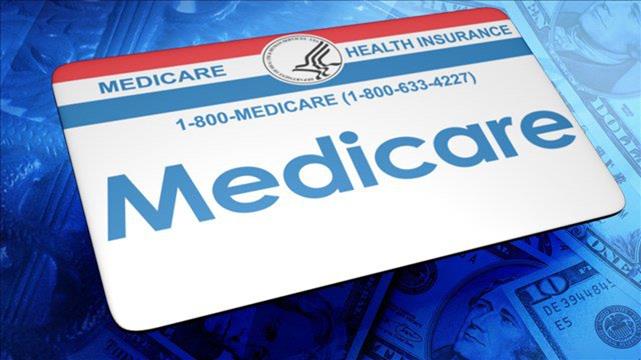Mastering Medicare’s Prescription Drug Coverage: A How-To Guide

Are you struggling to navigate Medicare’s prescription drug coverage? Look no further!
In this how-to guide, we will help you master the ins and outs of Medicare’s prescription drug plans.
Discover tips for choosing the right coverage, navigating the enrollment process, and maximizing savings on medications.
Whether you are a Medicare newbie or looking to optimize your current coverage, this guide is here to serve you.
Get ready to take control of your healthcare!
Key Takeaways
- Medicare Part D provides prescription drug coverage for individuals enrolled in Medicare.
- Understanding the drug formularies ensures that the medications you rely on are covered.
- Consider your specific healthcare needs and budget when choosing coverage.
- Maximize savings on medications by considering generic alternatives, comparing prices, and utilizing discount programs or coupons.
Understanding Medicare’s Prescription Drug Plans
To understand Medicare’s Prescription Drug Plans, you need to familiarize yourself with the different options available. Medicare Part D is a program that provides prescription drug coverage for individuals enrolled in Medicare.
It’s important to know that each plan under Medicare Part D has its own list of covered drugs called a drug formulary. These formularies outline the specific medications covered by each plan and the associated costs. Understanding the drug formularies is crucial when selecting a Medicare Part D plan that meets your needs. It ensures that the medications you rely on are covered and helps you make informed decisions about your healthcare.
Take the time to review the drug formularies and compare the options available to find the plan that best fits your prescription drug needs and budget.
Tips for Choosing the Right Coverage
When choosing the right coverage for Medicare’s Prescription Drug Plans, it is important to consider your specific healthcare needs and budget. Evaluating formulary options is crucial in ensuring that your medications are covered by the plan you choose. Take the time to review the list of drugs covered by each plan and compare it to the medications you currently take. Additionally, comparing plan premiums is essential to finding a coverage option that fits within your budget. Consider the monthly premium cost and any out-of-pocket expenses associated with each plan. To help you make an informed decision, here is a table summarizing the formulary options and plan premiums for Medicare’s Prescription Drug Plans:
| Plan Name | Formulary Options | Monthly Premium |
|---|---|---|
| Plan A | Comprehensive | $30 |
| Plan B | Limited | $20 |
| Plan C | Basic | $40 |
During the enrollment period, you can easily navigate Medicare’s Prescription Drug Coverage by following these steps.
First, make sure you’re aware of the enrollment deadlines. It’s important to enroll during the designated period to avoid any penalties or gaps in coverage.
Next, take the time to compare plan options. Look at the different prescription drug plans available and consider factors such as cost, coverage, and the medications you need.
Don’t be afraid to ask for help if you need it. Reach out to Medicare or a trusted advisor who can guide you through the process and answer any questions you may have.
Maximizing Savings on Medications
You can save money on medications by utilizing cost-saving strategies.
One effective way to cut costs is by considering generic alternatives. Generic medications are just as safe and effective as their brand-name counterparts, but they’re typically much cheaper. Talk to your doctor or pharmacist about whether a generic version of your medication is available and appropriate for you.
Another way to save money is by comparing prices at different pharmacies. Prices can vary significantly, so it’s worth shopping around. Some pharmacies also offer discount programs or coupons that can help lower the cost of your medications.
Additionally, consider using mail-order pharmacies for long-term medications. They often offer lower prices and convenient home delivery.
Special Considerations for Medicare Newbies
As a Medicare newbie, it’s important to be aware of special considerations related to your prescription drug coverage.
One of the first things to understand is Medicare eligibility. To be eligible for Medicare Part D, you must be enrolled in either Medicare Part A or Part B.
Another consideration is the common misconceptions surrounding prescription drug coverage. Many new Medicare beneficiaries mistakenly believe that Medicare Part D covers all medications. However, it’s crucial to know that not all drugs are covered, and there may be restrictions and limitations.
Additionally, some beneficiaries may be eligible for Extra Help, a program that assists with prescription drug costs for those with limited income and resources.
Understanding these special considerations will help you navigate your prescription drug coverage as a Medicare newbie.
Optimizing Your Current Prescription Drug Coverage
To maximize the benefits of your prescription drug coverage, it’s essential to explore ways to optimize your current plan. Here are some steps you can take to evaluate alternatives and reduce out-of-pocket costs:
- Review your current medication needs: Take a close look at the medications you’re currently taking and assess if there are any alternatives available that could be more cost-effective.
- Consider generic options: Generic drugs often have the same active ingredients as brand-name drugs but are much cheaper. Talk to your doctor about whether switching to a generic version is possible.
- Explore mail-order pharmacies: Some prescription drug plans offer discounts and lower co-pays for medications ordered through mail-order pharmacies. This can help reduce your out-of-pocket costs.
- Compare plans annually: Medicare prescription drug plans can change from year to year, so it’s important to re-evaluate your options annually to ensure you’re getting the best coverage at the lowest cost.
Resources for Further Assistance
For additional help, consult these resources to better understand Medicare’s prescription drug coverage.
If you have questions or need assistance navigating the complex world of Medicare, the Medicare helpline is available to provide guidance and support. Simply call the helpline, and knowledgeable representatives will be ready to answer your questions and address your concerns.
Additionally, online support groups can be a valuable resource for connecting with others who are going through similar experiences. These groups provide a platform for sharing information, seeking advice, and finding emotional support. Joining an online support group can help you feel less isolated and provide a sense of community as you navigate Medicare’s prescription drug coverage.
Frequently Asked Questions
What Are the Penalties for Not Enrolling in Medicare’s Prescription Drug Plans?
If you don’t enroll in Medicare’s prescription drug plans, you may face penalties. These consequences can include higher premiums and delays in coverage. It’s important to understand the potential penalties before making a decision.
Can I Switch Medicare Prescription Drug Plans During the Year if My Medication Needs Change?
Yes, you can switch Medicare prescription drug plans during the year if your medication needs change. This can help you save on medication costs and ensure you have the coverage that best suits your needs.
Are Over-The-Counter Medications Covered Under Medicare’s Prescription Drug Plans?
Yes, Medicare coverage does not include over-the-counter medications. However, it is important to check with your specific plan for any exceptions or alternatives that may be available to you.
How Does Medicare’s Prescription Drug Coverage Work for Individuals Who Are Under 65 Years Old?
Medicare’s prescription drug coverage works differently for individuals under 65. To understand your options, consider Medicare coverage options and eligibility criteria. It’s important to know what is available to you.
What Happens if I Reach the Coverage Gap or “Donut Hole” in Medicare’s Prescription Drug Plans?
When you reach the coverage gap, also known as the ‘donut hole,’ in Medicare’s prescription drug plans, there are alternatives to manage medication costs. Explore options like generic drugs, patient assistance programs, and Medicare savings programs.









